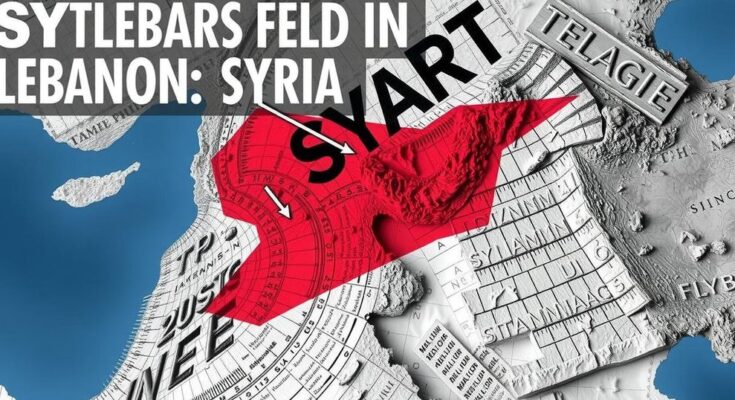The collapse of the Assad regime has ignited a Sunni awakening in Lebanon, leading to demands for prisoner amnesty and challenging Hezbollah’s influence. Major political tensions are brewing as Hezbollah grapples with its diminished power, especially in light of upcoming presidential elections. The trajectory of Lebanese politics will likely be influenced by the changing dynamics in Syria.
The aftermath of the earthquake that resulted from the collapse of the Assad regime in Syria has led to significant political reverberations in Lebanon. Initially, this development incited euphoric celebrations, particularly within Sunni regions. However, the situation quickly shifted as Sunni Islamist factions began to assert their demands on the Lebanese state, particularly for the release of prisoners. On December 10, Sheikh Ahmad Shemali spearheaded protests outside Roumieh prison, stressing the necessity for amnesty for all Islamist detainees, claiming it marked the start of new escalations. This has emboldened the Sunni community, which is now rallying against Hezbollah amid perceptions of its weakened status due to Syria’s shifting power dynamics.
The complexities of Lebanese politics indicate a growing crisis, as Hezbollah struggles to maintain its influence against Israeli pressures and internal dissent. A notable meeting between army commander General Joseph Aoun and Hezbollah’s Wafiq Safa highlighted tensions surrounding arms control, further complicating the political landscape as a presidential election approaches. With rising discontent among Sunni factions and potential fragmentation within the Christian community, Lebanon faces an increasingly precarious future. While Hezbollah remains a significant player, the possibility of a new political order led by Sunni interests is emerging, necessitating close monitoring of regional developments that could further impact Lebanon’s stability.
In this context, the Sunni awakening corresponds with a shift in Lebanese political dynamics, potentially reasserting Sunni leadership in response to Hezbollah’s current vulnerabilities. Although leaders like Ahmad al Sharaa (Abu Mohammed al Jolani) from Syria express intentions not to interfere in Lebanese affairs, the evolving situation underscores a critical juncture for Lebanon. As both internal and external pressures coalesce, the new Syrian regime may temporarily focus on its consolidation, but the regional context continues to fuel uncertainties within Lebanon.
Consequently, the ramifications of the Syrian upheaval extend deeply into Lebanon, specifically influencing Sunni political ambitions and impacting Hezbollah’s strategic calculations. As Lebanon anticipates its upcoming presidential elections, the interplay of Sunni, Shia, and Christian factions will likely define the future trajectory of the nation amidst a backdrop of regional volatility.
The political landscape remains fraught with potential shifts, urging Lebanon’s stakeholders to navigate carefully through these intertwining crises, as the implications of recent developments unfold.
The article discusses the political ramifications in Lebanon following the collapse of the Assad regime in Syria. The initial celebrations among Sunni communities have given way to demands from Islamist groups for the release of prisoners, highlighting an awakening within this segment of Lebanese society aimed at reasserting their influence. The weakened position of Hezbollah amid growing challenges complicates the political dynamics in Lebanon, necessitating awareness of the shifting alliances and power structures that may arise in the aftermath of these changes. The context of Sunni Islamist movements and their calls for change reflect a broader regional transformation that has the potential to reconfigure Lebanon’s political landscape significantly.
In summary, Lebanon is at a critical juncture following the seismic shifts brought about by the collapse of the Assad regime in Syria. The emergence of a more vocal Sunni community, coupled with Hezbollah’s weakened standing, indicates a turbulent political climate ahead. As factions vie for power and influence, the implications of these developments may reshape Lebanon’s internal politics and its relations with neighboring Syria. The upcoming presidential election will serve as a pivotal moment that could redefine Lebanon’s strategic alliances in the broader context of Middle Eastern geopolitics.
Original Source: aurora-israel.co.il




